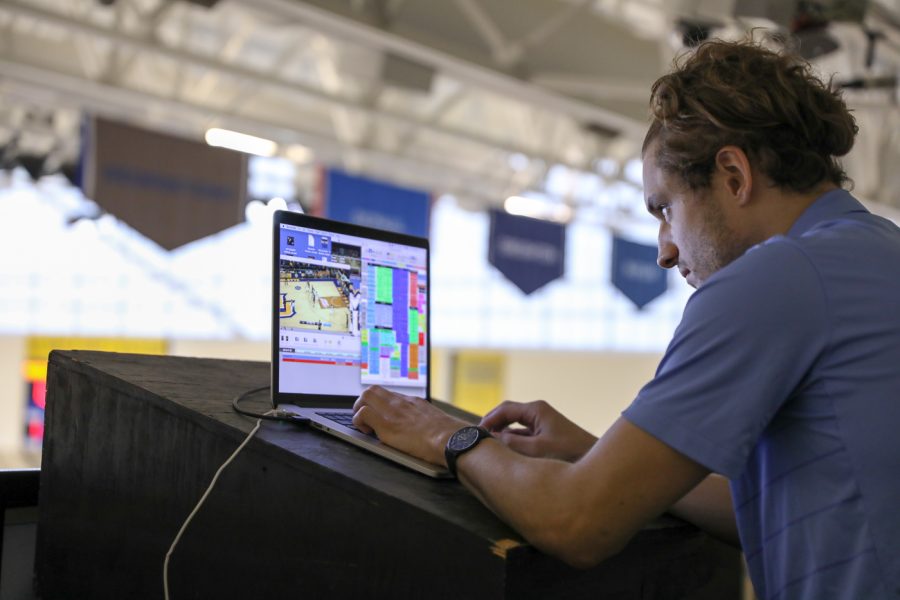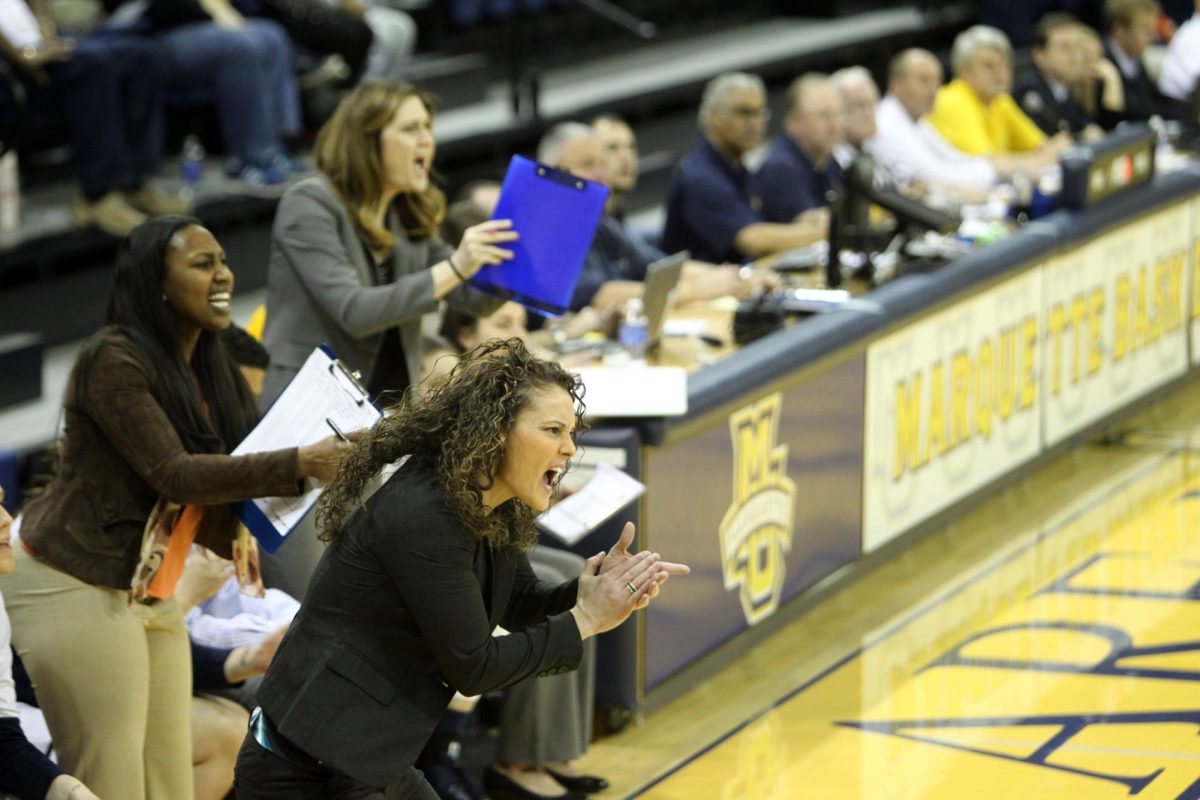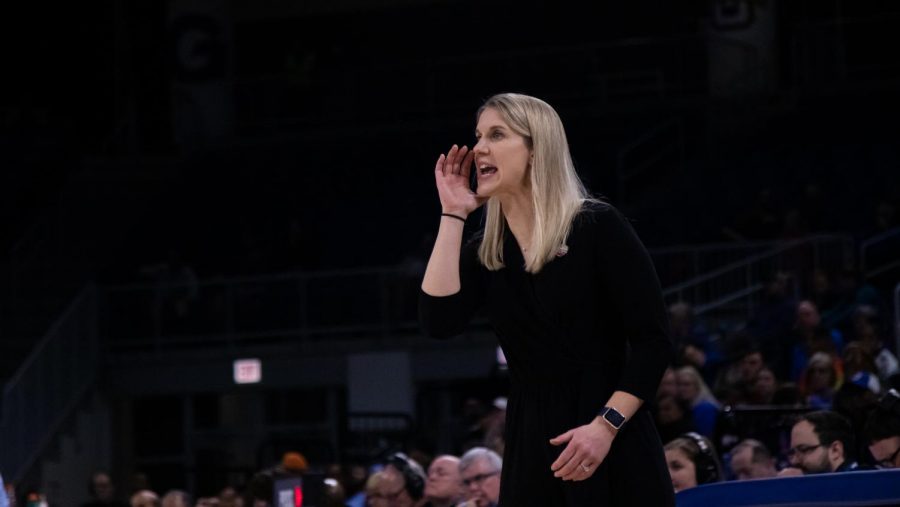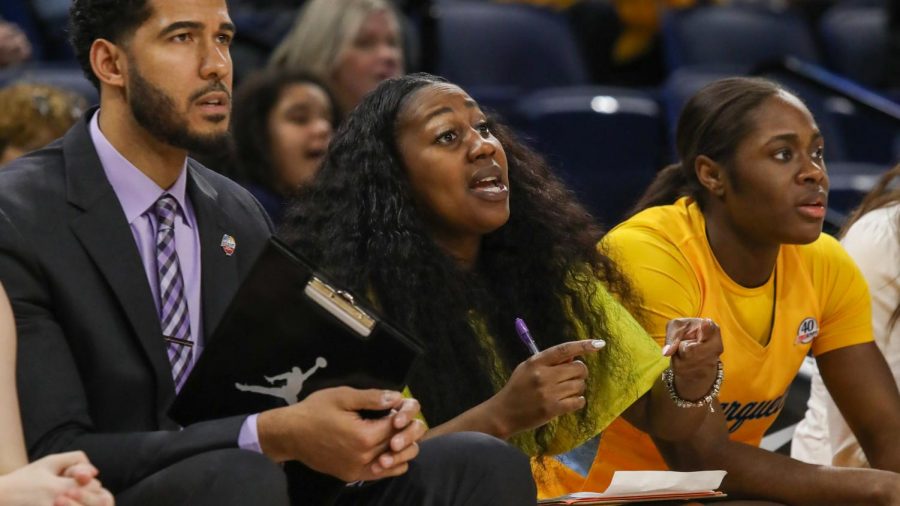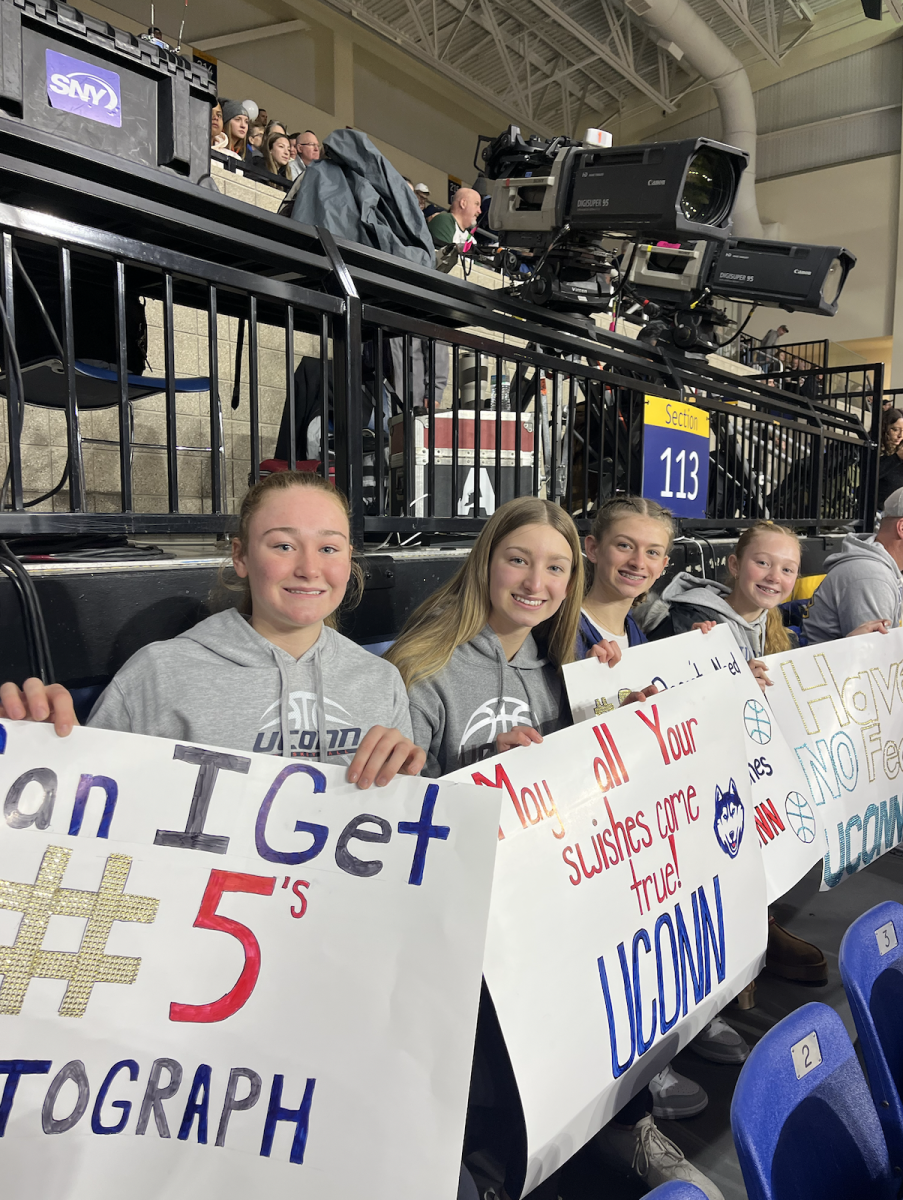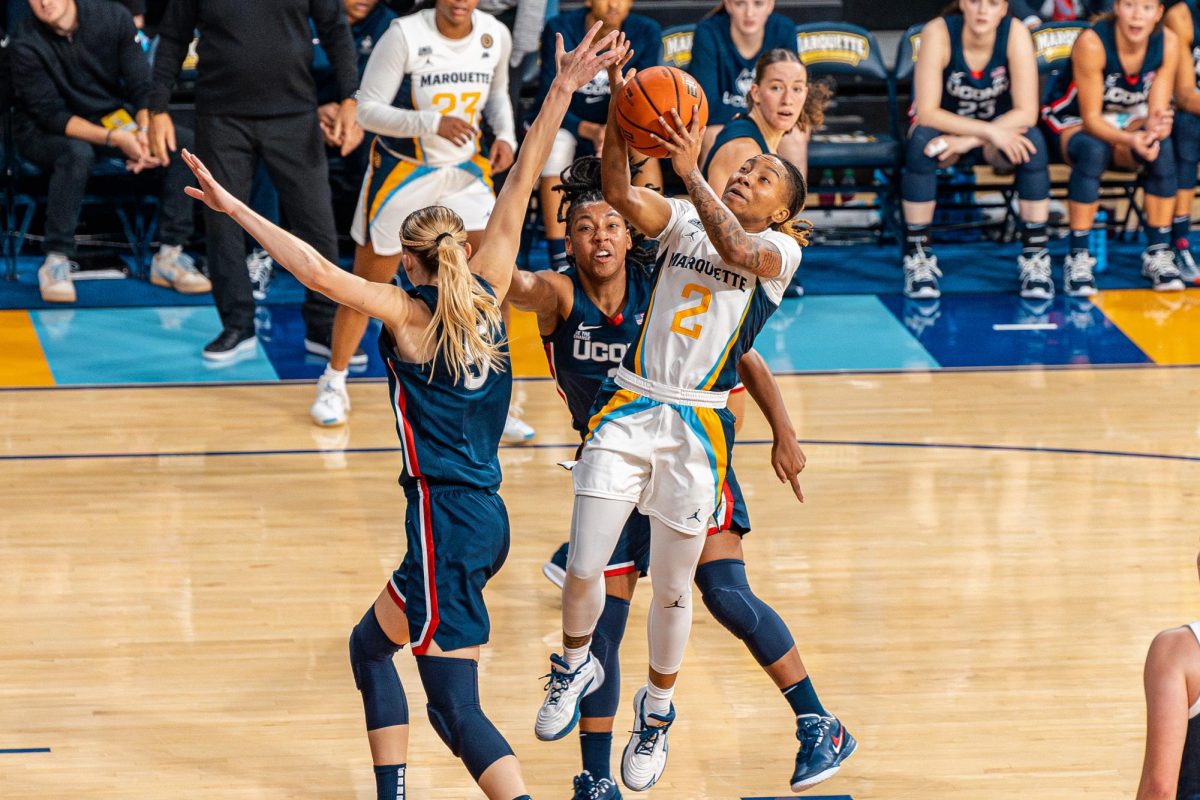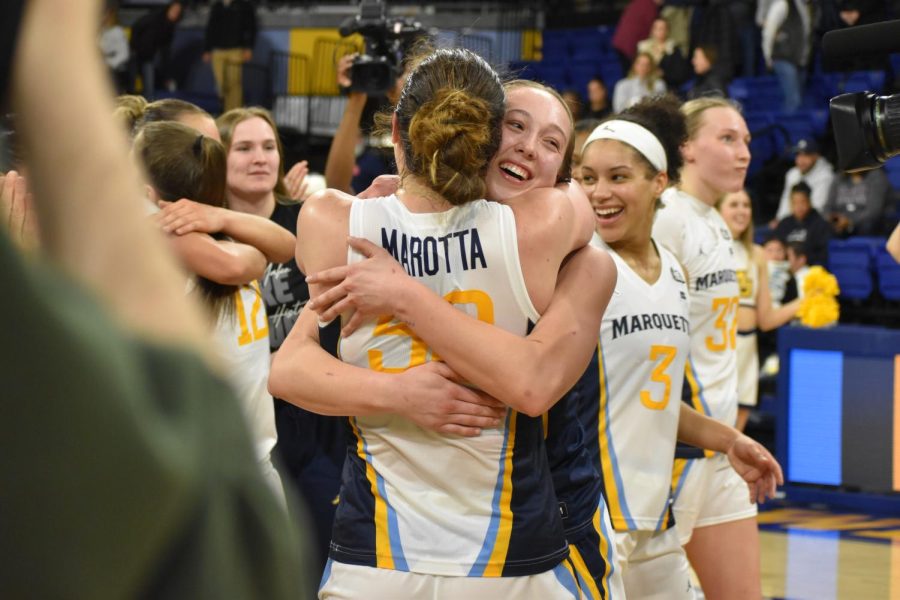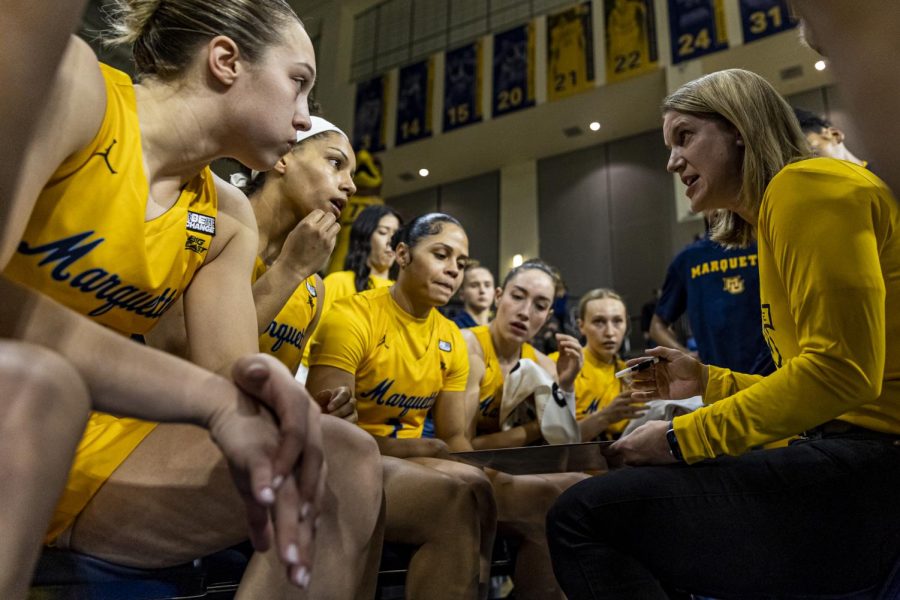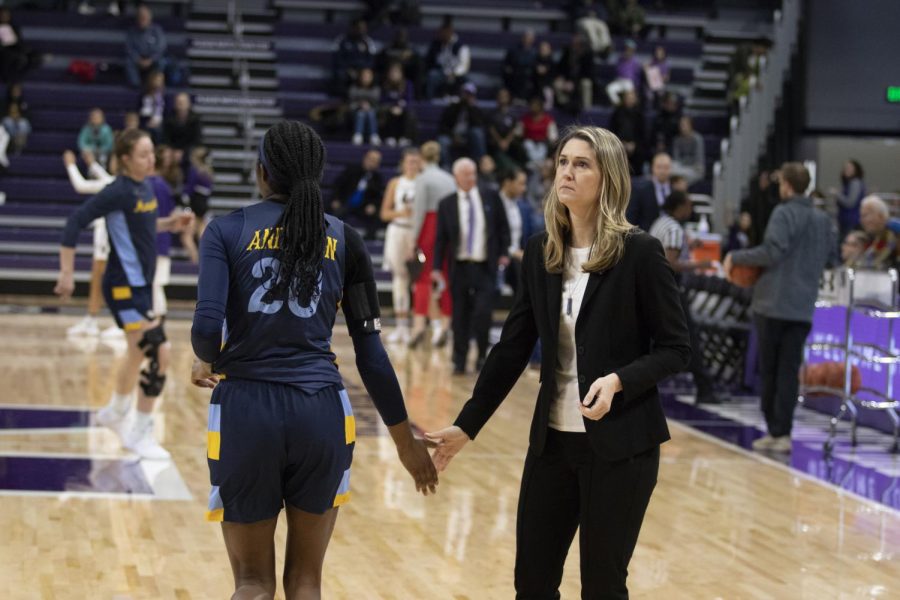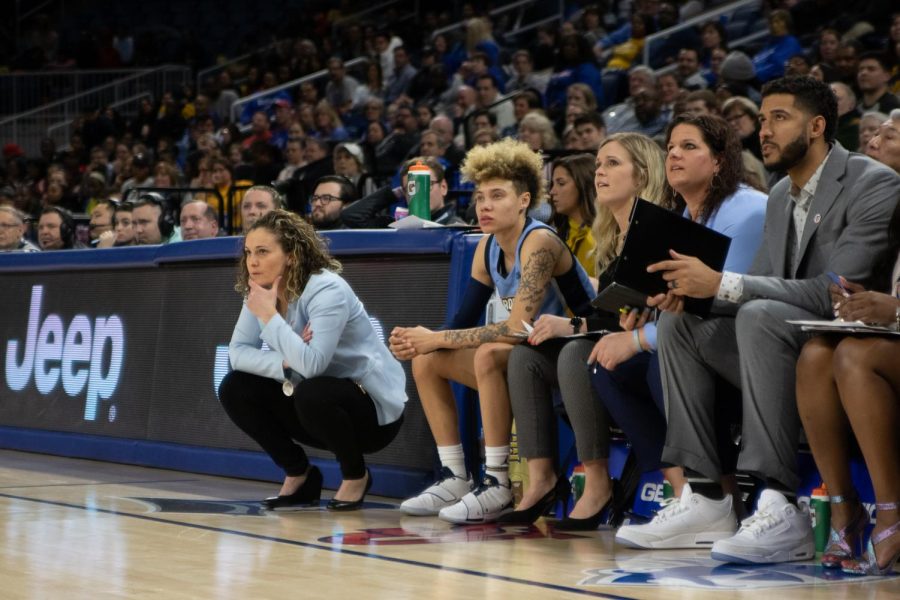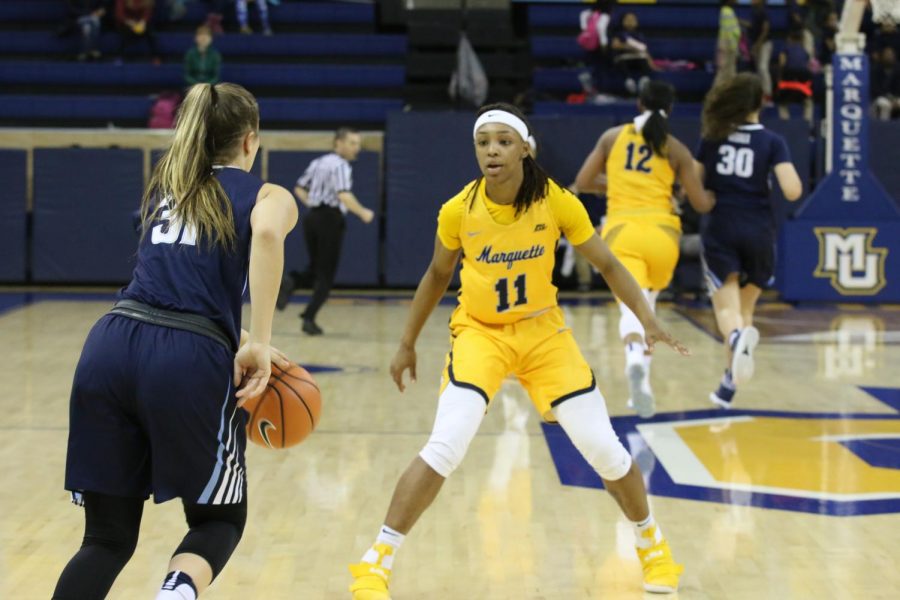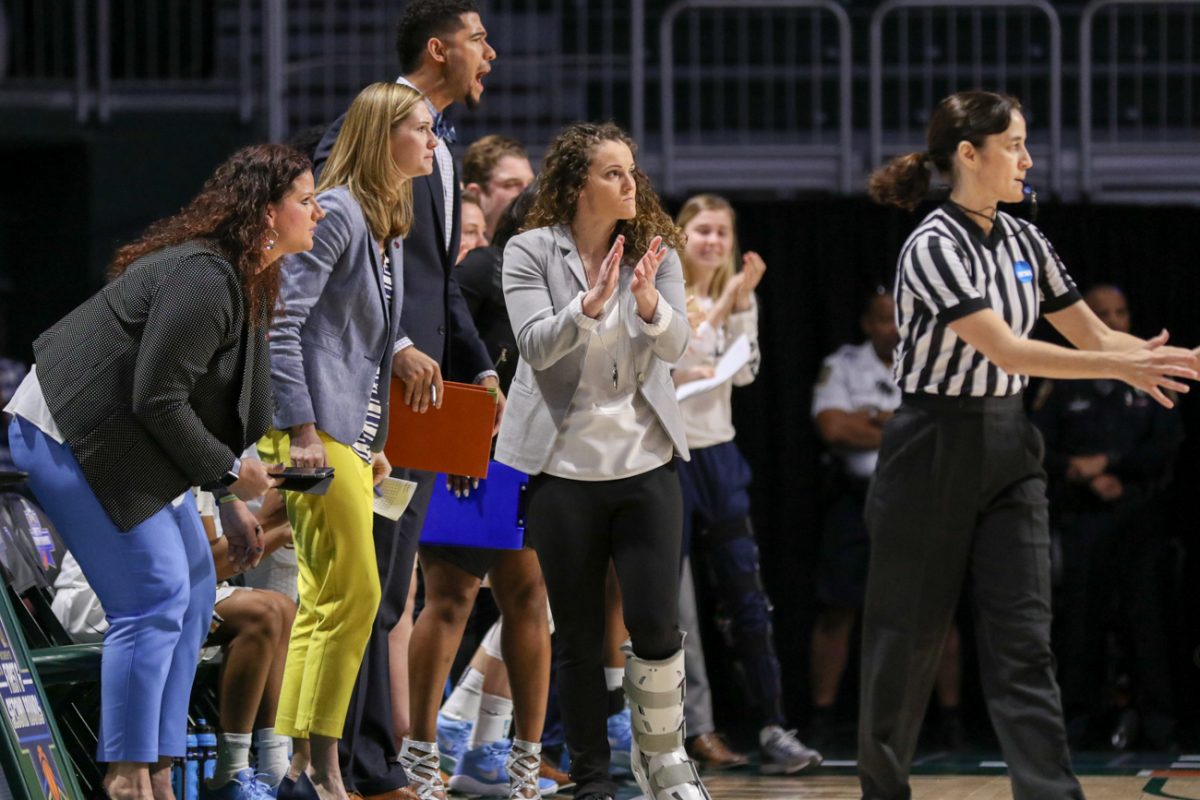While the majority of Marquette women’s basketball’s coaching staff is in the locker room tweaking the game plan at halftime, video coordinator Rob Carver is far away, usually in the arena’s rafters. That’s where sets up computers that receive real-time data on just about every single motion a basketball made during the previous 20-minute half.
Carver’s job is to take that data, label it, organize it and help the coaches decipher what it means.
“I’ll put in the play call, play type, location of shots, any statistics that can be tied to personnel,” Carver said. “When we go back, it’s a lot easier to recall information.”
Most of Carver’s responsibilities as video coordinator for Marquette women’s basketball can be boiled down to making it easier to others: for coaches to tell which statistical trends are important, for players to understand the game film, for people to understand basketball, a game that people devote their lives to figuring out, more easily.
“He gives us everything we need to make sure we are able to dive really deep,” assistant coach Ginny Boggess said. “His work allows us to really prepare.”
For Carver, life in collegiate basketball started as an undergraduate at the University of Miami. He was a practice player during his freshman year before becoming a women’s basketball manager, which meant filming each game. That’s also how Carver met an enthusiastic assistant coach named Carolyn Kieger, who took the head coaching job at Marquette a few weeks before Carver graduated.
Before Carver reunited with his former boss in Milwaukee, he spent a year working with the University of Connecticut, the country’s top women’s basketball program, as a “program specialist.” Over the course of that season, he got to know legendary Huskies coach Geno Auriemma beyond the hardwood.
“(Auriemma) is very different on the court as opposed to off the court,” Carver said. “On the court, he’s very authoritarian and everything has to be perfect, very intense, doesn’t hold anything back. When we’re sitting at dinner at the team meal, he’s joking around with everybody.”
Leaving UConn, which is less than an hour’s drive from Carver’s hometown of Avon, Connecticut, wasn’t even a consideration until Kieger called out of the blue one day to tell him about the video coordinator job at Marquette. A week later, he was in Milwaukee for interviews. The staff was instantly impressed.
“(Kieger) spoke very highly of him before he arrived, so his reputation preceded him,” Boggess said. “As advertised, he was a very diligent worker. You could tell in the questions he asked that he was very invested in what the position would require of him.”
Kieger’s second year at Marquette was especially challenging from a player development standpoint. Eight of the 2015-’16 team’s 11 players were freshmen, making it the youngest squad in all of college basketball. Young players generally aren’t used to internalizing scouting reports, which made it necessary for Carver and the staff to establish an efficient system.
“For the most part, it’ll be, ‘OK, here’s (sic) this player’s shot attempts, or here’s (sic) this player’s turnovers,’” Carver said. “I look at that and relay that information so that the coaches don’t have to spend as much time looking for them.”
In a recent Facebook Live session, Boggess said she’s seen dramatic changes in how the team receives pregame information. “The questions that they’re asking have really evolved since that first year,” Boggess said. “From ‘Oh, where am I? What am I supposed to be doing?’ now to deep questions about (our) philosophy and offense and schemes.”
Kieger, who was on the same Facebook Live session, immediately chimed in with her agreement. “Now they’re learning the why instead of just the what.”
That improvement was partially due to Carver’s meticulous editing of practice tape and hours on Synergy, combing through every last statistic. All that energy is spent in pursuit of a “story,” as Boggess put it: A two-hour game boiled down to bullet points. Simplicity.
“The video coordinator’s job is to make sure the coaching staff and the players are as prepared as possible for every game,” Carver said. “To make it as easy as possible for coaches and players to access the information.”

